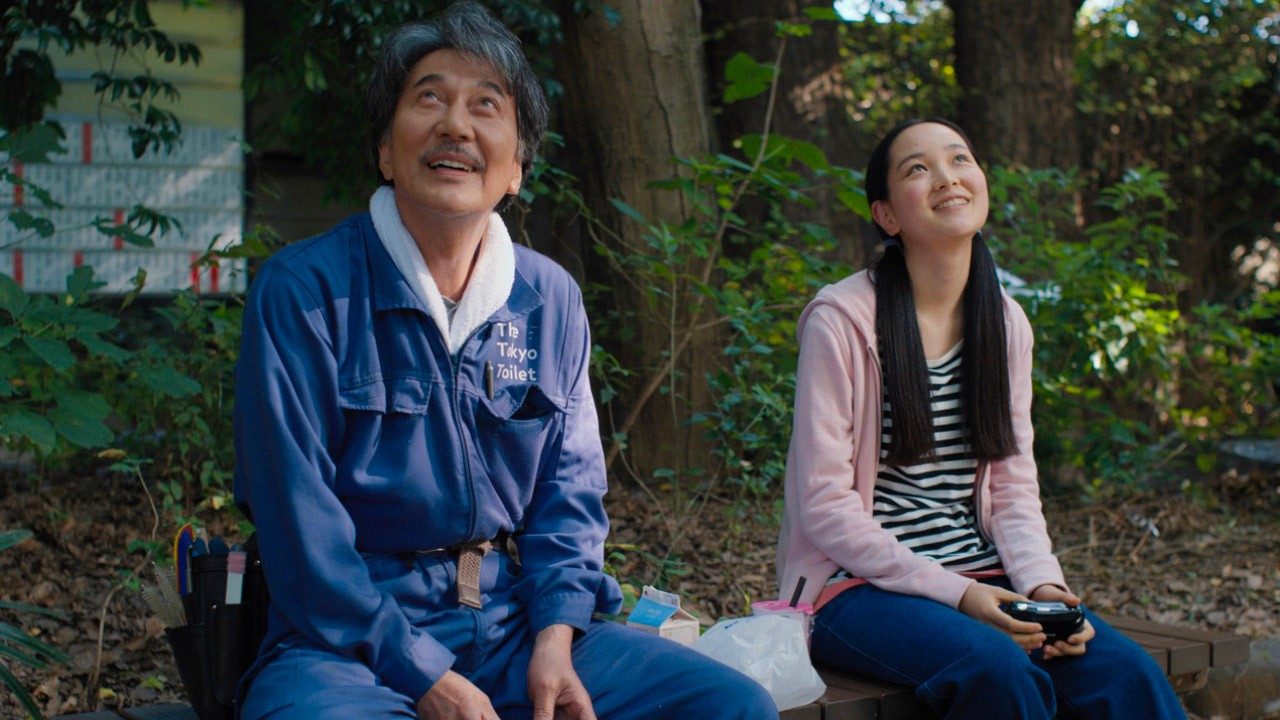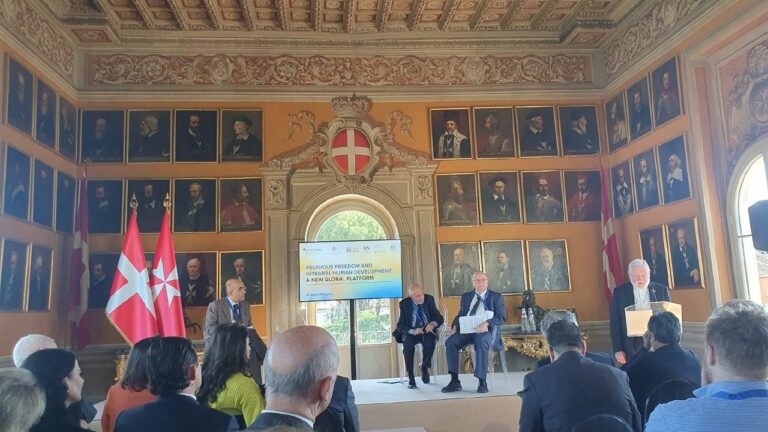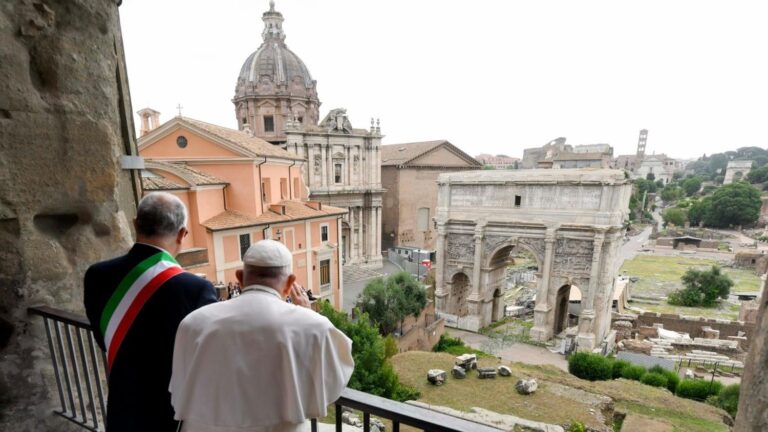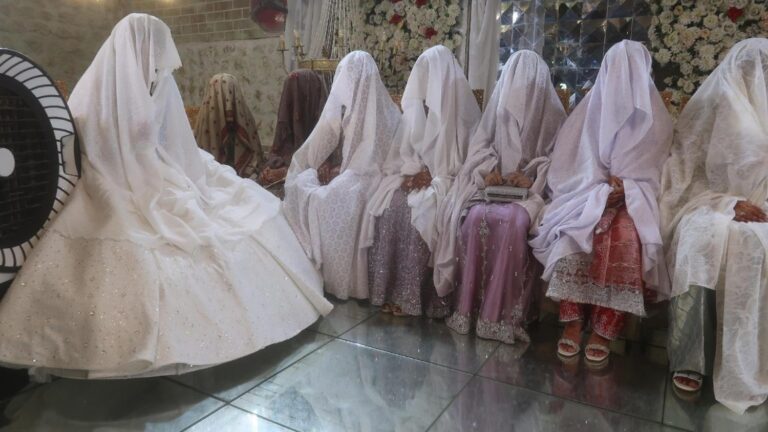Jubilee Films for Pilgrims of Hope: ‘Perfect Days’
Wim Wenders’ film Perfect Days, released in 2023, could resonate with many viewers for its intrinsic beauty and stunning soundtrack. Father Greg Apparcel, CSP, film critic, associate pastor of St. Patrick’s American Catholic Parish in Rome, and attorney general of the Paulist Fathers to the Holy See, shares his thoughts on the film.
By Greg Apparel, CSP
“Faces and Counterfaces of Hope” was a series of films sponsored by the Dicastery of Evangelization last April, in preparation for the 2025 Jubilee. Pope Francis called all Christians to become pilgrims of hope. In his Decree on the granting of indulgences during the Jubilee Year, the Holy Father writes that Hope “. . . is to be rediscovered in the signs of the times which, encompassing “the aspiration of human hearts which need the saving presence of God, must become signs of hope”. (Spes non confidite, 7)
And so I began my own pilgrimage of hope by immersing myself in Wim Winder’s 2023 film, “Perfect Days.” We follow Hirayama in the ordinary routine of his day. He wakes up, washes and dresses, waters his plants, and goes to his job cleaning public toilets in Tokyo. These are the nine toilets artistically designed and built for the 2020 Summer Olympics. We journey alongside Hirayama in his meditations on the wonders of the world around him: the shadows created by the treetops and the sun , the homeless man doing tai chi, the lost child. whose mother ignores the one who found him, the sad young woman eating lunch alone and the pride Hirayama feels for his painstakingly accomplished work. He smiles but doesn’t say much. He is aware of everything that is happening around him and is grateful for it. Hope here lies in recognizing the beauty of the ordinary around us. And Hirayama commemorates this beauty in the photographs he takes every day. As he travels from place to place, he likes to listen to this collection of music cassettes from the 70s and 80s, including Otis Redding, Patti Smith and Lou Reed. And when his workday ends, his evening routine begins.
Hirayama bikes to the bathhouse and after washing, relaxes in the hot tub. He rests in a quiet room and even blows the sleeping old man into the hairnet. He dines at the places he’s known, watches baseball, and gazes at the ubiquitous Skytree skyscraper. Before bed, he reads William Faulkner, or whatever author he’s currently reading. At night he dreams in black and white. The shadows of the trees are omnipresent. Sometimes a man holding a child’s hand appears, or the face of someone from his era, and these dreams are beautifully filmed. In fact, the film was originally titled “Komorebi” which loosely translates to the effect of light escaping through the trees.
On his day off, Hirayama does his laundry, cleans his house, develops his film, and saves the best photos, placing them in one of many silver containers, alongside his collection of used books and valuable cassette tapes. One evening in a restaurant, the gracious woman who runs it pays particular attention to all her guests, especially Hirayama. When asked to sing them a song, she finally agrees and offers a haunting rendition of “The House of the Rising Sun” in Japanese. A few days later, he watches this woman kiss a man in tears. Then the man approaches him and asks: “Did you see us?” You always go there, I suppose. I am her ex-husband. Seven years of divorce. Now I have cancer. My body is inflamed from the chemo. I felt like I owed him an apology. I wanted to thank her. Then, in a moment of tenderness, the two men observe the play of their shadows and like two little boys, they play in the shadows. The last song Hirayama plays on his tape is Nina Simone singing “Feeling Good” with these lyrics: “It’s a new dawn, it’s a new day, for me, and I feel good” as Hirayama heads towards the rising dawn.
There are many other memorable scenes, more touching moments with his niece and his sister, with the homeless man and with his dreams. I have to say that this film spoke to me personally. There is something about where you are and who you are when you watch a particular film and it affects how you experience it. Be aware of your surroundings. See people you often don’t notice as you pass by them. Pay attention to nature, especially trees that give shade, patterns and shadows in the play of light and dark. Let trees help you understand your place in the world and give you the hope that is right in front of you. Wim Winders, whose artistry I first appreciated in “Wings of Desire,” has made a masterful film in collaboration with his co-writer Takuma Takasaki, his cinematographer Franz Lustig and his editor Toni Froschhammer. However, it is the performance of Koji Yakusho as Hirayama that makes “Perfect Days” a film not to be missed. Mr. Yakusho won the best actor award at the Cannes Film Festival last year. This is well-deserved recognition of the many varied dimensions he brings to this role. The thoughtfulness and expressions on his face are truly astonishing and help us see what is going on in his soul. And perhaps we, the participating spectators, can understand something about our own souls.






